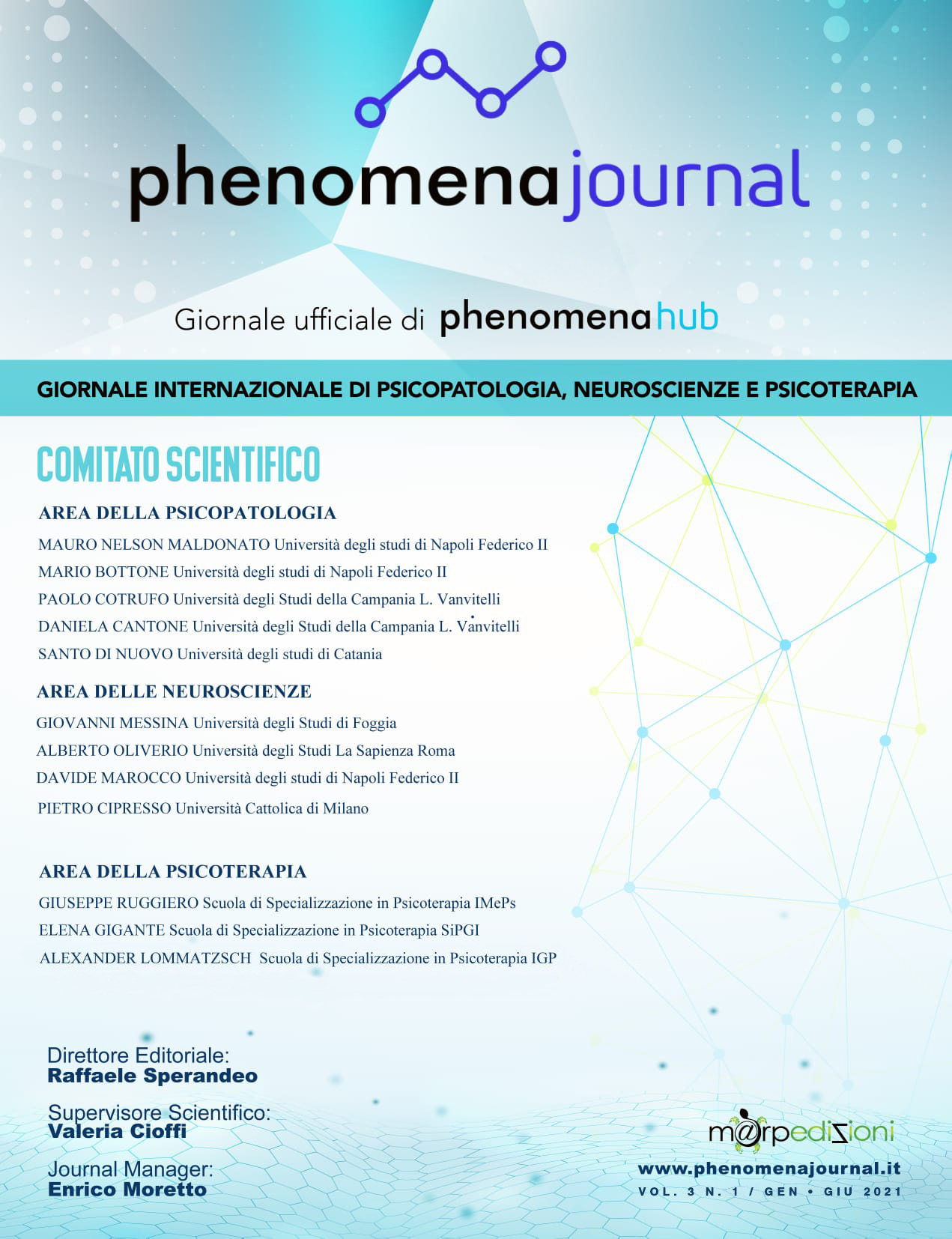The effect of decision-making styles and parental anxiety on the perception of childhood fears: a pilot study
Published 2021-04-01
How to Cite
Abstract
Background. Emotional experiences are essential for psychophysical development of children. Many factors are involved in this process: socio-cultural environment, relationships, parental behaviour and more. Caregivers play a crucial role in the development process of their children, as much as their ability to make a choice and to deal with children’s emotions [15]. A detailed review of relevant scientific literature reveals a research gap in the field of children’s fears, compared to parental anxiety and decision-making styles. This gap needs to be tackled in order to improve understanding of childhood fears. Aims. The pilot study investigate the correlation between caregivers’ trait anxiety and decision-making styles, to explore in depth their perception of children fears. Methods. Sample includes parents of three-to-ten-year-old children (n = 288), both mothers and fathers. Participants submitted online replies to three psychological tools: General Decision Making Style (GDSM), State-Trait Anxiety Inventory – Y Form (STAI-Y), Fear Survey for Children Revised – Parents Version (FSSCR-P). Results. Statistical analyses show a significant correlation between Trait Anxiety and Dependent decision-making style (r = .347). Statistically significant correlation was also noted between Trait Anxiety and Avoidant decision-making style (r = .373). Furthermore, anxiety can affect parents perception of children fear of unknown (F(1,25) = 9,22; p < .05) and it is predictive (β = .185; p < .05) of parents perception of children fear of failure and criticism. Then, Dependent decision-making style is predictive (β = .18; p <.05) of parental perception of children fear of abandonment. Conclusions. Looking at the family system and parental relationships represents an essential step for research in the field of development psychology, in order to understand childhood fears. Future studies need to involve a wider sample, including both caregivers and children. Finally, testing new hypothesis could lead to new psychotherapeutic treatment and experience in the perspective of integrated Gestalt therapy.
Keywords: Decision-making Style, Anxiety, Childhood fears, GDMS, STAI, FSSC-P

